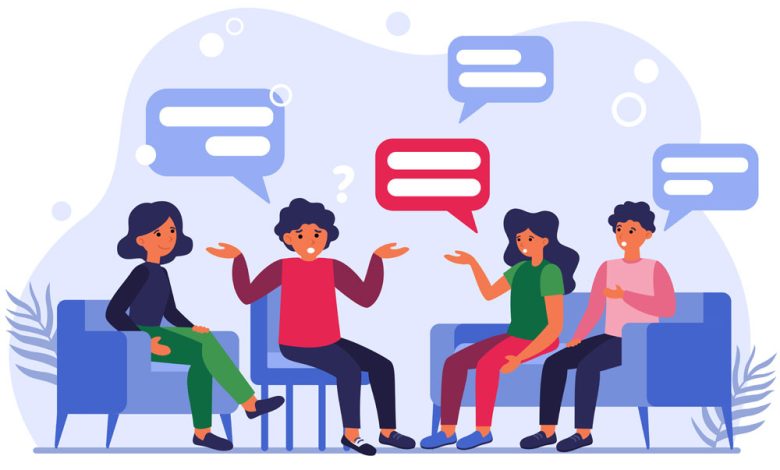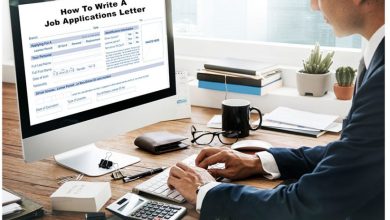Group Discussion: Tips & Tricks

Group discussions, sometimes known as GDs, involve participants discussing thoughts or actions. Everyone in the group conversation is related by a single fundamental concept. Everyone in the group reflects their viewpoint based on that premise. The general discussion (GD) is a session in which the candidate’s abilities are evaluated, including leadership, communication, social and behavioural skills, courtesy, teamwork, listening skills, general awareness, self-assurance, and problem-solving abilities.
Usually, the Group Discussion comes after the entrance exam for a professional degree. Depending on the firms or organisations, the group discussion may be the first or the last step in the hiring process.
The location of the group conversation does not have to be at the table. Any seating arrangement is OK as long as everyone can see one another’s faces. It is not only a typical talk; it is also a discussion based on facts and knowledge.
What is Group Discussion?
Group
A group is a collection of people who collaborate to accomplish a common goal. The effectiveness of a group depends on how well its members work together.
Discussion
Discussions involve two or more people discussing ideas, and they typically take place face-to-face. Talking among individuals is the method used to arrive at a chosen decision. It can also be described as a discussion about a certain subject. Group discussions can lead to specific decisions, increased knowledge, actions, disagreements, arguments, and other outcomes.
Why GD?
The usage of GD to assess applicants’ soft skills has increased throughout the years. The written exam gauges one’s aptitude and knowledge. Organizations evaluate a candidate’s technical, social, and communication abilities to ensure that there are no barriers standing in the way of their ability to perform effectively.
It evaluates a candidate’s personality, communication, teamwork, self-assurance, problem-solving, social, behaviour, and leadership qualities. It is also crucial when shortlisting applicants for a job or university entrance.
Sometimes, even a smart candidate with strong knowledge and abilities lacks communication skills, which can manifest as a lack of confidence, hesitance while speaking, an inability to clearly articulate one’s viewpoint, etc. As a result, group discussions are now a required component of the majority of organisations and institutions.
A candidate needs to have knowledge and technical abilities, but in an organisation, he or she may also have to deal with meetings, discussing technical concerns, managing new hires, etc. Here, the candidate’s lack of communication abilities becomes a liability. Therefore, businesses and institutions make sure that potential employees have all the necessary traits before they join.
Group Discussion Process
Let’s discuss how GD or Group discussion is conducted.
Participants
A group may have anywhere from 7 to 12 individuals. Depending on the strength at hand, a group discussion may include one or several candidates. The number of participants might range from 5 to 7 if the strength is weak.
Duration of a GD
A group discussion lasts 15 minutes on average. However, it might change based on the amount of applicants in a group. The discussion may occasionally last more than 15 minutes depending on the panellists or judges. In between, they can put an end to the conversation. The notion that the focus group will last only 15 minutes should not be taken into consideration by the participants.
Click Here For Information About: Email Writing Format
Process
- The topic is announced to begin the group discussion process. The assigned subject may be factual, technical, or case study-related.
- The three minutes allotted for preparation are given prior to starting the debate. If the case statement is lengthy, the time may also be extended.
- Any group member has the power to start the conversation. Anyone in the group may carry on the conversation after the lead participant. In a same vein, everyone has an opportunity to speak.
- Members of the group speak in turn about their opinions on the subject at hand.
- When the panellist terminates the conversation, it comes to an end. They may also ask one or more participants to sum up the GD. Remember to include all of the discussed issues whenever you are asked for a summary. The words that were not discussed cannot be included in the summary.
- Usually, those who didn’t actively participate in the conversation are asked to sum it up, which is an excellent chance for them to express their opinions. However, this does not imply that everyone should remain silent. The end of the debate and the key issues that were discussed should be included in the summary.
- The results are determined. The panellist assigns ratings based on each participant’s performance. Four to five people often make up the panel that evaluates candidates’ Group Discussion performance.
Values Of Group Discussion
Group discussions are a crucial component of the recruitment process, testing candidates in the workplace, etc. Additionally, it is critical in enhancing a candidate’s skill set.
So let’s talk about the value of group discussion.
- builds confidence
The group discussion gives the participants a chance to speak in front of others, which boosts their confidence and helps them talk without holding back. - focuses on deep contemplation
It gauges a candidate’s expertise. Only a short period of time (3 to 5) is given to the participants for preparation. They must prepare a list of topics to cover in such a short period of time. Group members listen to and comprehend one another’s points of view, which causes them to reflect carefully on the subject. - Reduces speaking hesitancy
Some candidates typically feel awkward speaking in front of an audience. Such candidates could first have trouble speaking. However, it gets better after two or three group discussions. Such candidates benefit from group discussions by speaking up and expressing their opinions. It further eliminates their reluctance to talk. - Teamwork is also the foundation of group discussion.
It is crucial in a business to collaborate as a team on the given job. As a result, in the group discussion, the effectiveness of teamwork is assessed. The panellist also assesses how well the group members cooperate. It enables individuals to express their opinions to other group members.




